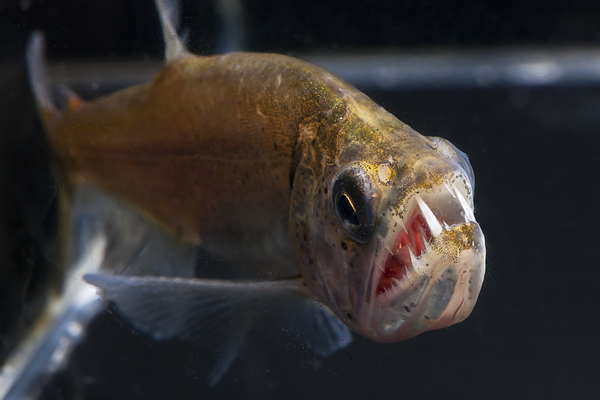
When it comes to choosing which animal is right for you, the best thing one can do is to do research ahead of time in order to become knowledgeable and prepared. Often, you will have a general idea of what kind of animal you want, but it is important to keep in mind that what you think you want may not actually be what is best for you. For example, I personally would love a pair of Dwarf Caiman, but I accept that there is no way that I could currently care for these animals and that it would be unfair for me to even try. It is imperative to ask questions of yourself and examine what qualities you are looking for and what potential issues you should stay away from. There are many facets to consider when researching your next pet, but these are some of what we believe are the most important.
Do you want something that is handleable? For many people (at least those who are not looking for fish), the answer to this is likely to be yes. This is a great starting point for considering the advantages of certain animals over others. For example, if you are looking for a reptile and want it to be handleable, you could start looking at animals such as Ball Pythons, Bearded Dragons and Blue Tongue Skinks while staying away from animals such as Day Geckos and Anoles. Likewise, it can be useful to know about animals such as Chameleons who can be handled but tend to get so stressed out about it that it's best to limit it as much as possible.
How much space can you devote for the animal? This can be a huge consideration regardless of the type of animal you are looking at. You need enough tank space to support any fish you buy once it reaches adult size, which can be extraordinarily challenging for a number of species commonly available such as Redtail Catfish, Pacu, and Iridescent Sharks as well as a huge number of marine fish. Are you willing to fence off a large portion of your yard to give to a Sulcata Tortoise once it reaches 100 pounds or more or dedicate an entire room for a soon-to-be six foot Iguana? Even species that grow to less extreme sizes such as Oscars and Redtail Boas are going to require a significant space investment. If you are not willing to address these challenges, an animal that takes up less space (such as Leopard Geckos, Dwarf Cichlids, Clownfish, and Cardinals) might be a better choice.
Are you willing to feed your animal the appropriate foods? This is particularly important for reptile keepers. If you're not willing to feed mice, you should probably stay away from virtually all snakes. If you don't want to be constantly buying crickets, there are a number of lizards you should avoid. Most fish can be kept successfully when fed high quality food pellets, but there are some species that require live feeders. Are you willing to be constantly buying these feeders?
If you are looking at fish, it is vital to consider the details of your aquarium. Consider your tank size, filtration, how long it has been running, water chemistry details (pH, hardness, salinity, etc.), and what other fish you already have in order to be able to make educated decisions on what tank mates might work well, what should be avoided, or realize if the tank is overstocked and shouldn't hold any more fish. Similarly, if your tank is brand new or you suspect that it hasn't completed its cycle, limit the number of fish you put in (or use a fishless cycle method) to avoid overwhelming the nitrifying bacteria and exposing your fish to dangerous levels of ammonia.
Can you accommodate the specific needs of the animal you are looking at? Issues such as keeping an elevated salinity for a brackish fish, whether or not UV light should be supplied for a specific lizard, what temperature(s) the enclosure should be kept at, and how to handle humidity and ventilation are all vital to successfully keeping certain animals. Keeping a Jackson's Chameleon like you would a Bearded Dragon will inevitably result in a dead chameleon.
Are you willing to care for the animal for its entire life? Some animals, such as a number of small fish, only have a lifespan of a few years. Several of the very commonly available tarantulas can live twenty five years or more. Others, such as certain tortoises, could potentially outlive you and your children.
Are you willing to put forth the time, effort, and money to properly care for your animal? Some pets are incredibly easy to care for and do not require much attention. Many tarantula keepers enjoy being able to keep large collections while only having to devote an hour or two a week to maintenance and care. Living in Florida, I am able to keep veiled chameleons outside where many of their needs (including heat, UV, and water) are naturally provided, leaving me to only have to ensure they are properly fed and occasionally give extra water during dry spells or bring them inside during cool weather. Other animals, such as large reef tanks, require careful monitoring of conditions, frequent maintenance, and often expensive equipment in order to provide the conditions necessary for success. For some people, the relationship and level of attention inherent in keeping such setups is soothing and as much part of the appeal as the life forms they are supporting. Take some time to examine how much you are truly willing to devote to an animal to avoid biting off more than you can chew.
When choosing an animal, keep in mind that if that animal doesn't fulfil your true desires, or if you are unable to provide the necessary care for it, you probably shouldn't get that animal. It is easy for people to let our enthusiasm and excitement overpower our logical side leading to impulse buys that are doomed to fail. When we bring home an animal, it is our responsibility to ensure the best possible life for that animal, and we should not take that responsibility lightly.











